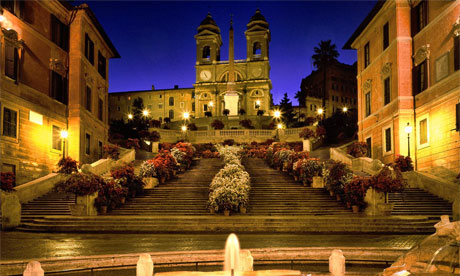Italy’s Catholic Church has shifted its view and is showing a willingness to revisit its tax-exempt status on property.
Criticism of the Church has grown following Premier Mario Monti’s proposal to restore a property tax on first and second homes as part of sweeping austerity measures.
Ordinary Italians are being asked to make sacrifices and the Church is coming under fire to do its part to help rein in Italy’s massive debt.
Cardinal Angelo Bagnasco, the head of the Italian bishops’ conference, said Friday the church would be open to looking at the issue and remedying any individual “abuses” that might have occurred.
“The current norms are correct in that they recognize the social value of activities carried out by many non-profits, among them church ones,” he said. “It’s also correct that if there have been concrete cases in which a tax that should have been paid wasn’t, we should verify the abuse and end it.”
“The church should pay the IMU for commercial activities,” said Cooperation and Integration Minister Andrea Riccardi, who is also the founder of the influential Catholic community Sant’Egidio.
The minister added there should be no “big confrontation” between Church and State on the issue of taxes.
“It’s better to verify on a case-by-case basis and intervene only if there has been bad faith”, he said.
The church has long insisted that it enjoys no special tax privileges, noting that nonprofit organizations, cultural associations, foreign embassies, Lutheran-owned churches and the synagogues of the Jewish community, are exempt from local property taxes.
However in 2006, Parliament extended a property tax exemption to cover buildings that weren’t “exclusively” commercial, such as private health clinics or convents that host pilgrims.
That created a gray area where church-owned properties could conceivably carry out some commercial activities and still retain their tax-exempt status.
Sources
